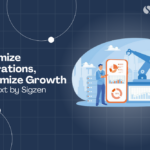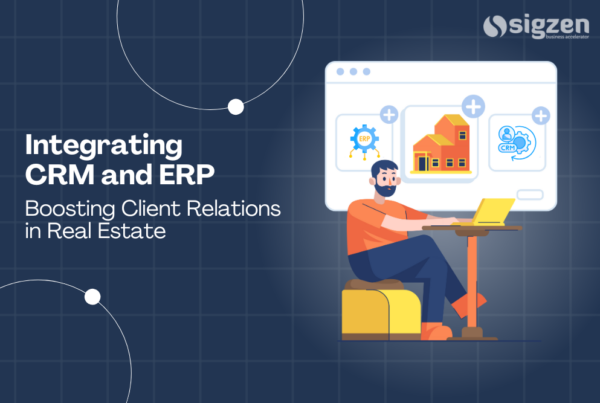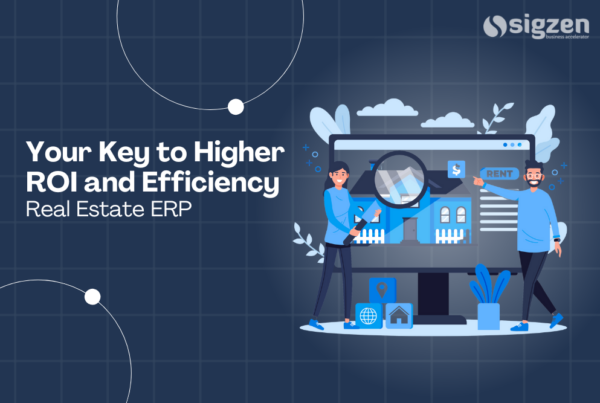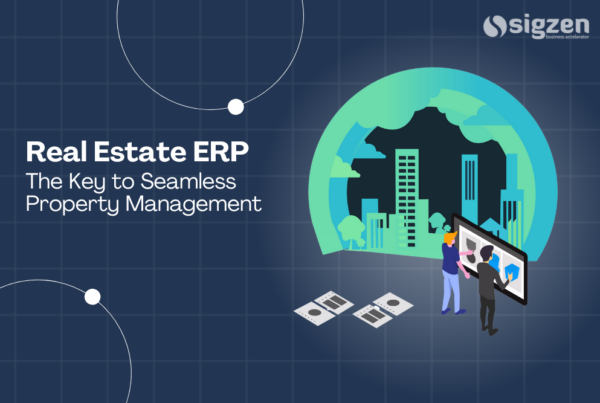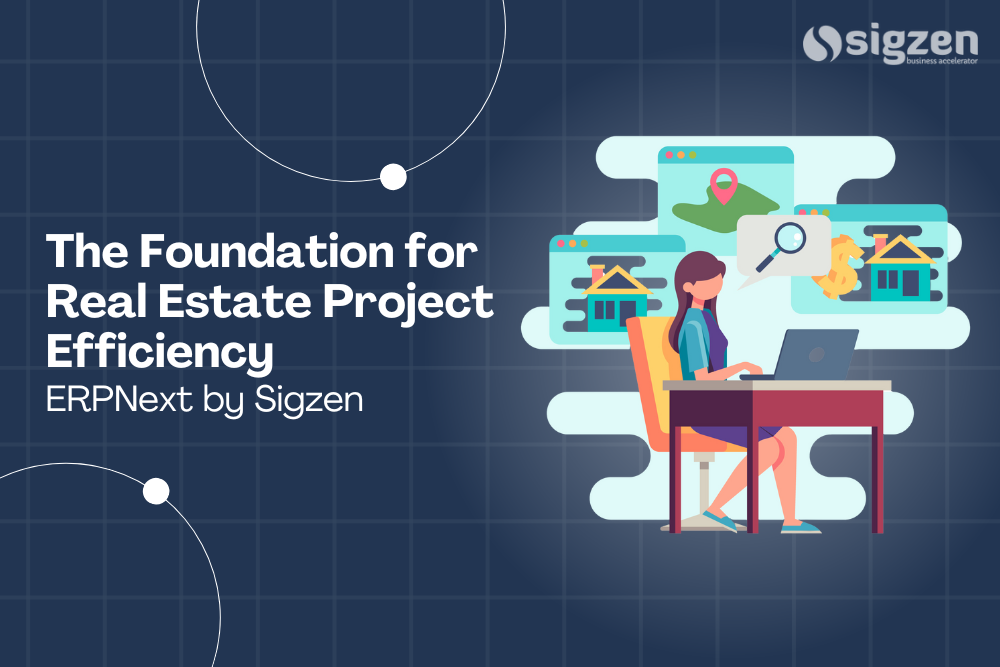
Introduction: Revolutionizing Real Estate Project Management with ERP Software
Managing real estate projects is no small feat. With numerous stakeholders, extensive timelines, and fluctuating costs, the need for a centralized system to oversee all processes has become essential. This is where ERP for Real Estate steps in as a transformative tool. From streamlining workflows to tracking costs and managing client interactions, ERP software for real estate ensures projects are delivered on time, within budget, and with uncompromised quality.
This article explores how ERP systems, particularly those tailored for real estate, elevate project management, improve decision-making, and enable businesses to stay competitive in a fast-paced industry.
What is ERP for Real Estate?
ERP (Enterprise Resource Planning) for real estate is a comprehensive software solution designed to unify and streamline various aspects of real estate project management. Key features include:
- Centralized Data Management: Ensures a single source of truth for all project-related data.
- Project Tracking: Monitors progress, deadlines, and deliverables.
- Financial Oversight: Manages budgets, expenses, and cash flow.
- Client and Vendor Coordination: Enhances communication across all stakeholders.
Learn how Sigzen’s real estate ERP solutions can transform your project management.
Key Challenges in Real Estate Project Management
1. Fragmented Processes
Real estate projects often involve multiple departments working in silos, leading to miscommunication and inefficiencies.
2. Budget Overruns
Without a clear overview of financial data, costs can spiral out of control, jeopardizing project profitability.
3. Delayed Timelines
Coordination issues and unforeseen delays can push project deadlines, affecting client satisfaction.
4. Compliance Requirements
Real estate businesses must adhere to legal and regulatory standards, requiring meticulous documentation and timely updates.
How ERP Enhances Project Management for Real Estate
1. Unified Project Management
With ERP software, businesses can centralize all project-related data, enabling seamless collaboration and transparency. Features include:
- Task Management: Assign, track, and monitor tasks across teams.
- Milestone Tracking: Ensure critical deadlines are met with real-time updates.
- Resource Allocation: Optimize resource usage to avoid underutilization or bottlenecks.
2. Financial Management
ERP systems integrate financial modules to provide real-time insights into project costs and revenue. Benefits include:
- Budget Control: Set and track budgets for each project phase.
- Automated Billing: Streamline invoicing with integrated real estate ERP software.
- Profitability Analysis: Evaluate project ROI using comprehensive financial reports.
Explore ERPNext’s project management capabilities here.
3. Enhanced Client Relationship Management
An integrated CRM module ensures smooth interactions with clients and stakeholders:
- Centralized Client Data: Store contracts, communications, and payment details in one place.
- Automated Updates: Send timely updates on project progress.
- Client Portals: Enable clients to view project timelines and financial updates.
4. Streamlined Compliance
Real estate ERP software simplifies compliance with regulatory requirements:
- Document Management: Digitally store and retrieve permits, contracts, and inspection reports.
- Audit Trails: Maintain detailed logs of all project activities.
- Compliance Alerts: Receive notifications for upcoming deadlines or renewals.
Key Features of Real Estate ERP Software
1. Task and Resource Management
Efficiently allocate resources and manage workloads to avoid delays and cost overruns.
2. Budgeting and Cost Tracking
Gain real-time insights into financial data to control project expenditures.
3. Vendor and Contractor Management
Centralize vendor information and track contractor performance to ensure accountability.
4. Real-Time Reporting and Analytics
Generate customizable reports to monitor key performance indicators (KPIs) like project progress, budget adherence, and resource utilization.
5. Mobile Accessibility
Access ERP features on the go with mobile-friendly interfaces, ensuring teams stay connected regardless of location.
Learn how Sigzen’s ERP solution supports these features.
Benefits of ERP for Real Estate Project Management
1. Improved Efficiency
By automating repetitive tasks and centralizing data, ERP systems reduce manual errors and enhance productivity.
2. Enhanced Decision-Making
Real-time analytics and dashboards enable managers to make informed decisions quickly.
3. Cost Savings
Optimize resource allocation, prevent budget overruns, and improve vendor negotiations.
4. Better Stakeholder Collaboration
Streamline communication across clients, contractors, and internal teams to avoid misunderstandings.
5. Increased Compliance
Stay on top of regulatory requirements with built-in compliance management tools.
Enterprise Resource Planning Project Management in Action
Case Study: A leading real estate developer struggled with fragmented processes and delayed timelines. After implementing Sigzen’s real estate ERP solution, they achieved:
- 30% reduction in project delays through improved resource allocation.
- 25% savings in operational costs with automated budgeting and financial tracking.
- 100% compliance rate with real-time documentation and audit-ready reports.
Best Practices for Implementing ERP in Real Estate
- Identify Key Challenges: Understand pain points like budget overruns or compliance issues to prioritize ERP features.
- Select the Right Software: Choose ERP solutions like Sigzen Estate tailored to the real estate sector.
- Train Your Team: Ensure employees are well-equipped to use the ERP system effectively.
- Monitor KPIs: Regularly review performance metrics to measure the ERP’s ROI.
Addressing Common Concerns
1. Is ERP Only for Large Real Estate Firms?
Modern ERP solutions are scalable, making them suitable for businesses of all sizes.
2. How Secure is Real Estate ERP Software?
ERP systems use advanced encryption and access controls to protect sensitive data.
3. Is ERP Expensive?
While ERP requires an upfront investment, its long-term cost-saving benefits outweigh the initial expenses.
Conclusion: Transform Your Real Estate Projects with ERP
Real estate businesses that rely on outdated tools risk inefficiencies, delays, and missed opportunities. ERP for real estate offers a centralized, automated solution to these challenges, enabling businesses to streamline operations, enhance project management, and improve profitability. With features like budgeting, resource allocation, and compliance management, ERP software is a must-have for businesses aiming to stay competitive in the real estate market.
Ready to elevate your real estate projects? Request a demo from Sigzen Estate today!
